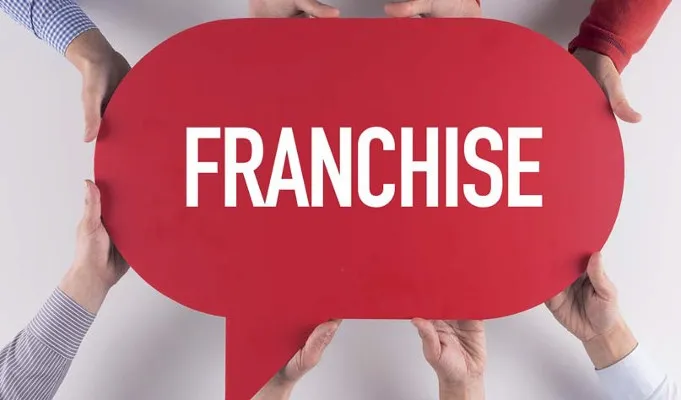THE LAW REGULATING FRANCHISE BUSINESS IN TANZANIA
1. Introduction
Franchising is a concept whereby independent entities embark upon mutual cooperation, as a part of which the franchisor (as the system’s organiser) transfers onto the franchisees, in exchange for an appropriate fee, the recipe for particular business activity and how it should be operated. The relationships between those entities are based on a contract and lead to the creation of a franchise network, constituting of entities that are independent legally, in terms of ownership and financially, who are at the same time homogeneous from the point of view of those purchasing offered products or services. The core type of entities that operate as franchisees in the majority of networks is micro, small and medium-sized enterprises (SMEs), who find the franchising concept to be a great opportunity of obtaining support towards their entrepreneurial activities.
Therefore, a franchise is an authorization granted by way of an agreement by an original business owner (franchisor) with a view of providing its brand, operational model and required support to another party (franchisee) to use and run a similar business using similar brand for a fee or share of the income generated from the business.
Generally, franchising is usually meant to expand businesses and distribute goods and services to meet higher consumer demand where the original owner, for various reasons, is unable to reach. It is based on a relationship between the brand owner and the local operator to extend an already established successful brand into a local market
2. Intellectual Property issues in franchising ·
Along with the right to use the business model the franchisor will license to the franchisee the intellectual property rights and know-how associated with that business as well as provide initial and ongoing training and support. The intellectual property rights that are licensed in a franchising arrangement almost always include trademarks, copyright and often include trade secrets, industrial designs and patents – depending on the nature of the business. One could say that franchising is a special type of licensing arrangement in that it involves the right to use a business model which necessarily includes the right to use the intellectual property rights integral to that business along with support, training and mentoring.
3. Franchise business in Tanzania
In Tanzania, there are number of existing franchises business across business sectors. The most common franchise business are such as KFC, Pizza Hut, Spurs, Mr Price.
A franchise is set up by the franchisee purchasing a franchise from the franchisor. Principally, The procedures for setting up a franchise will normally be regulated by the law of the jurisdiction in which the franchise will be set up. In Tanzania, all legal contractual relationships are governed by the primary law, that is, the Law of Contract Act, Cap. 345 and other various legislation including sectoral/institutional compliance.
Normally, the franchisee must follow certain rules and guidelines already established by the franchisor, and in most cases, the franchisee must pay an ongoing franchise royalty fee to the franchisor. Essentially, the royalty fee is an ongoing payment a franchisee makes to the franchisor after buying into a franchise. It is also can be viewed as a membership fee for the duration of the franchise.
4. The Franchise Contract
A franchise agreement is a binding legal document between a franchisor and a franchisee. This document spells out the expectations, obligations, permissions and restrictions for operating the franchise. A franchise agreement also outlines a fee schedule that the franchisee pays to the franchisor, including amounts or percentages and the frequency of payments.
Franchise agreements assign the rights to use a franchisor’s intellectual property and resources to a franchisee for a predetermined amount of time. The rights and allowances assigned to a franchisee are very specific and leave little room for expansion or error.
The franchise agreement will go into detail to explain more about the franchisee/franchisor relationship. It will include detailed information regarding proprietary statements and outline things like site maintenance and upgrade requirements.
Before a Franchisee signs a franchise agreement, you should have a clear understanding of what it is and what it obligates you and the franchisor to.
- Franchise agreements are important and necessary legal contracts between the franchisor and the person interested in opening a franchise.
- Generally, Franchise Contracts must include key provisions, including a fee schedule and the use of a trademark or trade name, to be considered proper franchise agreements.
- While franchise agreements are relatively standard, with the right legal advice, you can negotiate terms. Among others, the following are some of the key provisions in the Franchise Contract:-
- Location/territory. The franchise agreement will designate the territory in which you will operate and outline any exclusivity rights you may have.
- Operations. This section details how franchisees are expected to run their units.
- Training and ongoing support. Franchisors offer training and training programs for franchisees and their staff. Training may take place at corporate offices or out in the field. All ongoing administrative and technical support will also be outlined in the agreement.
- Duration. The document will detail the length of the duration of the franchise agreement.
- Franchise fee/investment. There will generally be an upfront initial franchise fee that grants the franchisee the right to use the franchisor’s trademark and operating system. Those costs will be clearly outlined.
- Royalties/ongoing fees. Here you will find the details of the franchisor’s royalty structure. Most franchisors require franchisees to pay an ongoing royalty, usually a percentage of total sales, which is often paid on a monthly basis.
- Trademark/patent/signage. This section will outline how a franchisee can use the franchisor’s trademark, patent, logo and signage.
- Advertising/marketing. The franchisor will reveal its advertising commitment and what fees franchisees are required to pay towards those costs.
- Renewal rights/termination/cancellation policies. The franchise agreement will describe how the franchisee can be renewed or terminated. Some franchisors include an arbitration clause. This requires, in the event of any legal action, that an arbitrator review the case before it goes to court.
- Exit strategies. Every franchise has its own resale policy. Some allow franchisees to sell their franchises at their discretion. Other agreements include buyback or right of first refusal clauses. These allow the franchisor to buy back the franchise at a rate determined by them or to match any potential buyer’s offer.
5. Legislation Applied in Franchise in Tanzania
In Tanzania, there is no specific legislation/law that carters for Franchise business. Therefore, several legislations must be read together to establish the concept altogether as well as enforcement and operation of the Franchise Business. The following are among the laws that provide for the business operation, compliance and management (including Franchise business) in Tanzania: –
- The Law of Contract Act, Cap. 345
- The Income Tax Act, Cap. 332
- The Value Added Tax Act, Cap. 148
- The Companies Act, Cap 212
- The Stamp Duty Act, Cap. 189
- The Business Licensing Act, Cap. 208
- The Tanzania Food, Drugs and Cosmetics Act, Cap. 219
- The Trade and Services Marks Act, Cap. 326
- The Tanzania Investment Act, Cap. 38
- The Copyright and Neighboring Act, 1999
- The Fair Competition Act, Cap. 285
- The Patent Act, Cap. 217
- The Standards Act, Cap. 130
6. Advantages for Franchise:
Buying a franchise can be a quick way to set up your own business without starting from scratch. There are many benefits of franchising but there are also a number of drawbacks to consider. The following are among the advantages for Franchising:-
- The risk of business failure is reduced by franchising. Your business is based on a proven idea. You can check how successful other franchises are before committing yourself.
- Products and services will have already established a market share. Therefore there will be no need for market testing.
- You can use a recognised brand name and trademark. You benefit from any advertising or promotion by the owner of the franchise – the ‘franchisor’.
- The franchisor gives you support – usually as a complete package including training, help setting up the business, a manual telling you how to run the business and ongoing advice.
- No prior experience is needed as the training received from the franchisor should ensure the franchisee establishes the skills required to operate the franchise.
- A franchise enables a small business to compete with big businesses, more so than an independent small business, due to the pool of support from the franchisor and network of other franchisees.
- Franchisees usually have exclusive rights in your territory. The franchisor won’t sell any other franchises in the same territory.
- Financing the business may be easier. Banks are sometimes more likely to lend money to buy a franchise with a good reputation.
- Franchisee can benefit from communicating and sharing ideas with, and receiving support from, other franchisees in the network.
- Relationships with suppliers have already been established thus the Franchisee can tap on them immediately and assured.
7. Disadvantages for Franchise
Despite the numerous advantages of Franchising, there are also drawbacks/disadvantages of using Franchising, these include:-
- Costs may be higher than you expect. As well as the initial costs of buying the franchise, you pay continuing management service fees and you may have to agree to buy products from the franchisor.
- The franchise agreement usually includes restrictions on how you can run the business. You might not be able to make changes to suit your local market.
- You may find that after some time, ongoing franchisor monitoring becomes intrusive.
- The franchisor might go out of business (windup, liquidated or face financial challenges)
- Other franchisees could give the brand a bad reputation, so the recruitment process needs to be thorough.
- You may find it difficult to sell your franchise – you can only sell it to someone approved by the franchisor.
- All profits (a percentage of sales) are usually shared with the franchisor.
- The inflexible nature of a franchise may restrict your ability to introduce changes to the business to respond to the market or make the business grow.
There is little or no room of innovation or creativity as the Franchisee is expected to perform or operate as dictated by the Franchisor.
8. Conclusion
As Tanzania is opening for investment opportunities, Franchising should be among the component for attracting investment as well. Even though there is no one legislation that provides for Franchising law in Tanzania still the same can well be successfully operated and administered in Tanzania.



